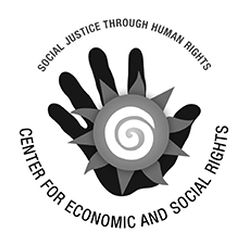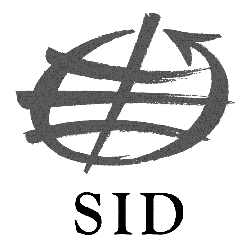By Ziad Abdel Samad, Arab NGO Network for Development (ANND)
In September 2015, a universal commitment to achieving sustainable development for all and leaving no one behind was made with the adoption of the 2030 Agenda and its Sustainable Development Goals (SDGs). Labelled as “one of the more controversial goals,” [fn]http://sdg.iisd.org/news/undp-administrator-discusses-post-2015-agenda-sdg-16-and-soft-means-of-imp…. [/fn] or that having “contentious origins” [fn]www.idlo.int/news/highlights/opportunities-and-challenges-implementing-goal-16. [/fn] SDG 16 took its place among the 17 goals, reaffirming that peace, justice, effective and accountable institutions as well as inclusive societies are prerequisites for sustainable development. SDG 16 became distinctive with its transformative nature, requiring genuine implementation, effective monitoring and enhanced accountability for overall progress of the 2030 Agenda. However, currently there is no significant progress with regard to SDG 16.
A quick review of the global peace and security situation presents a bleak picture. Looking at the Middle East alone:
- Of the more than 65 million people displaced worldwide, a report by the UN revealed [fn]UNHCR (2016). [/fn] that around 5 million refugees in countries neighbouring Syria affected by the war awaiting a political solution to end the war and achieve transitional justice.
- The world is challenged by 71 different conflicts, among them 11 civil wars with high atrocity; six of them are in the Arab region, while eight are in the Middle East. [fn]www.conflictmap.org/conflicts. [/fn]
- It has been nearly 70 years that the Palestinians face illegal occupation for whom peace and self-determination go hand in hand.
- Most recently the former Egyptian President Hosni Mubarak was released (after six years house arrest), which in the words of human rights defender Malek Adly is “a blatant example of the selective prosecution that exists, bearing testament to the increasing politicization of the courts”. [fn]www.al-monitor.com/pulse/originals/2017/03/egypt-mubarak-release-mixed-reactions-ahmed-douma.html. [/fn]
In such a context, the transformative nature of SDG 16 makes it uniquely powerful, yet also difficult to achieve as it requires significant shifts in all its interlinked aspects: peace should be sustainable, positive (i.e., not simply the absence of violence); accountability should be mutual; inclusive societies requires the adoption of new social contracts; justice must be comprehensive including social, economic, environmental, cultural and political justice. In addition to this, the commitment to SDG 16 should be further strengthened together with resources allocated to development financing, rather than military spending and investments. Global military expenditure in 2015 was US$ 1,676 billion, about 2.3 percent of the world’s total Gross Domestic Product (GDP). [fn]www.sipri.org/commentary/blog/2016/opportunity-cost-world-military-spending. [/fn] Reallocation of resources to development would be key to achieving the SDGs, and a shift from militarization as business to development financing would be central for achieving SDG 16.
Peace: give (positive and sustainable) peace a chance
In 1969 John Lennon’s lyrics summarizes it so simply: “All we are saying is give peace a chance.” But we need to stress now that the peace should be positive and sustainable. In other words, political will to give peace a chance and thus arrive at an absence of violence, conflict and war should be complemented by a comprehensive approach that encompasses all aspects of human security. More than two decades ago, in 1994, the UN Human Development Report introduced the concept of human security. [fn]UNDP (1994). [/fn] With its seven identified components, namely economic, food, health, environmental, personal, community and political security, human security - defined simply as freedom from fear and freedom from want - necessitated a shift from a State-centric security approach. This transition was affirmed in the report, which stated that “it is now time to make a transition from the narrow concept of national security to the all-encompassing concept of human security”. [fn]Ibid., p. 24. [/fn]
Nevertheless the global context now is in reverse mode; recent practices and discourse on security promote national security foremost. It is easy to recall the US President promising to build a border wall to boost national security or the EU that made border deals with Turkey or proposed a new Migration Policy Framework to Southern Mediterranean partner countries within which the priority is to keep refugees closer to home, thus a burden-transferring for the sake of EU’s security.
With its 10 targets related to outcomes and two related to means of implementation, SDG 16 does not integrate all components of human security, and thus do not entail a comprehensive approach to achieve sustainable and positive peace. Yet with a holistic approach, the implementation of the 17 goals, and the targets of SDG 16 specifically, could ensure progress in all seven areas of human security.
A close look at SDG 16 nevertheless shows that the implementation of targets 16.4, 16.5, 16.6, 16.7 and 16.8 - addressing illicit financial and arms flows, corruption, transparency, inclusive and representative decision-making and global governance would be decisive. This is mainly because these targets address systemic issues in the current neoliberal order, including lack of transparency and shrinking policy space. However, the indicators for these targets remain mainly quantitative, thus requiring those monitoring and advocating for genuine implementation to continuously tackle qualitative aspects. A framework for positive and sustainable peace should be the umbrella for these efforts, to turn the targets into effective outcomes. Yet, this is not enough and should be complemented with an elaborated approach of justice, accountability and inclusivity.
Justice: provide social justice for all
How can we achieve justice? The question can lead to different answers, when one sees justice as a relative or subjective concept. But by following a rights-based approach, as the 2030 Agenda does, justice can be particularly interpreted as providing social justice for all.
This initially requires a U-turn from long-promoted neoliberal policy approaches. The latter, entailing trade liberalization, privatization, efforts to attract of foreign direct investment compounded with a reduced role of the State and shrinking policy space, led to widening and deepening inequalities within and among countries, thus resulted in a lack of social justice. The United Nations dedicates each year one day, namely 20 February, to social justice, as a symbolic act to remember us that we have to struggle for addressing inequalities and social injustices in the remaining 364 days of the year.
In this struggle, a revision of redistribution policies are at the forefront. Ensuring progressive taxation, social protection for all and addressing informal labour through sustainable employment generation policies are a must. Such policy revisions should be strengthened with a shift from a rentier State to a developmental State within which policies are rights-based and people-centred and decision-making processes are inclusive and representing different opinions.
In such an approach, the rule of law and justice would be enjoyed not only under the shadow of police forces, courts and prisons. With target 16.3 governments commit to “promote the rule of law at the national and international levels and ensure equal access to justice for all”. This target is quite comprehensive as it covers injustices at national and international levels and stresses the “equal” access to justice for “all”. This would also include, for example, injustices deriving from trade agreements.
To implement the goal of social justice for all, new social contracts between the State and the citizen could be created that can tackle inequalities at multiple levels, be it geographic, political, gender, ethical, religious, social, economic, cultural and environmental. However state accountability is not enough alone. We actually need mutual accountability to be enhanced through the implementation of the Agenda.
Accountability: enhance mutual accountability
State accountability is critical for citizens, who should be able to hold their governments accountable for their commitments and demand effective policies to address core development issues. SDG 16 tackles the goal of accountability with a specific target, namely target 16.6, requiring the development of “effective, accountable and transparent institutions at all levels”. As indicators of progress the indicator framework identifies the allocation of primary government expenditures by sector and the proportion of the population satisfied with their experience of public services. Nevertheless, the practice we face is not as simple as it reads. Governments remain restricted in adopting policies and measures to achieve this target, as they have to respect the conditionalities attached to financing and follow neoliberal policy prescriptions by the international financial institutions (IFIs) and others. These prescriptions have resulted in the adoption of rigid austerity measures by many countries, rising unemployment and the widespread violation of the right to social protection for many, including women, elderly and disabled people. In other words, effective institutions fail, as private interests overcome public interests and rules set by the multinational corporate powers and the IFIs became dominant over national interests.
Moreover, SDG 16 remains limited in scope when it focuses only on State accountability as primary towards achieving peaceful societies. All development actors’ accountability is mutual and interlinked towards realizing societal peace. Yet not all of them receive the same attention. Mostly underexposed is the accountability of the private sector, particularly when it comes to the protection against human rights violations. Let us consider the case of a female worker in a textile company in a developing country. Lack of decent work conditions, no social protection and maybe even sexual harassment at work should point fingers not only at the State but also at companies and their customers, often multinational retailing corporations. A long-term perspective on accountability would require legally binding accountability rules for all development actors, including domestic companies and multinational corporations, in order to implement the SDGs. In this context, measuring progress in the provision of certain public services or more budget resources allocated to health and education that would impact directly the life of a woman would only be considered as short-term progress, not addressing any of the root causes of inequalities she faces. But how can she be even heard if there is no enabling environment for her to speak up?
Inclusiveness: support an enabling environment
While the indicator on the number of people satisfied with public services is useful in relating the target to the experience of real people, progress on this indicator requires an enabling environment to make their voices heard. One would not feel left behind, if his/her opinion were asked, heard and taken into consideration. This is not possible through tick-box exercises and consultations done randomly. People should enjoy fundamental freedoms of assembly, expression and association, should have access to timely, reliable information and resources to actively engage in public policy-making. In response, multi-stakeholder national dialogues should be a common practice, through which transparency is preserved in all policy areas, including key policies like trade, development, investment and so on. National social dialogue should have all necessary tools at diverse levels supported by representative institutions accessible to all.
Unfortunately shrinking civic space is the reality for both North and South: take the case of a human rights defender facing human rights violations due to a travel ban, imprisonment, arbitrary detention or a protest against police intervention. Arrests of protestors occur in many countries. However calls for human dignity, including respect for these fundamental freedoms will always be made and never be wiped away. Indeed when non-violent marches, like the Women's March in the USA and in several other countries in January 2017, occurred, we all felt hopeful for the future. Likewise when the Tunisian Quartet won the Nobel Prize in 2015 or the Syrian White Helmets were nominated in 2016, our trust in people’s power come into daylight once again.
In this regard, SDG 16’s specific targets are important in terms of altering the situation at the national level (16.10 on access to information and the protection of fundamental freedoms specifically), but inclusivity is relevant beyond the national level. Inequalities and imbalances in representation have to be addressed at international level as well. Thus target 16.8 is complementary to inclusivity, aiming to “broaden and strengthen the participation of developing countries in the institutions of global governance”. However such institutional reforms would remain only a small step in response to the overall need for structural changes in the development paradigm promoted. The development needs and how the institutions of global governance address these development needs must be the key question kept in mind.
Conclusion
The 2030 Agenda makes the strong link between establishing sustainable peace and security, building democracy, promoting human rights, and implementing relevant policies for social justice and sustainable development. All of these elements are listed in SDG 16 and its targets. It is consequently obvious that the overall assessment of SDG 16 is one of the most difficult and complicated.
Effectively, the security conditions across the globe are deteriorating. Armed conflicts are increasing worldwide both in their number and in atrocity, resulting in millions of refugees, internally displaced people and migrants, besides the huge loss of human and physical resources. Inequality is increasing due to the unprecedented concentration of wealth in the hands of the few. All these factors and many others show the enormous difficulties that the efforts to achieve SDG 16 are facing but makes its implementation even more critical. Therefore SDG 16 ought to be prioritized and set the framework for all the other goals and targets in order to really achieve sustainable development for all.
Ziad Abdel Samad is Executive Director of the Arab NGO Network for Development (ANND), based in Beirut, Lebanon.
UNDP (1994): Human Development Report 1994. New York.
http://hdr.undp.org/sites/default/files/reports/255/hdr_1994_en_complete_nostats.pdf
UNHCR (2016): Global Trends. Forced Displacement in 2015. Geneva.
https://s3.amazonaws.com/unhcrsharedmedia/2016/2016-06-20-global-trends/2016-06-14-Global-Trends-2015.pdf








